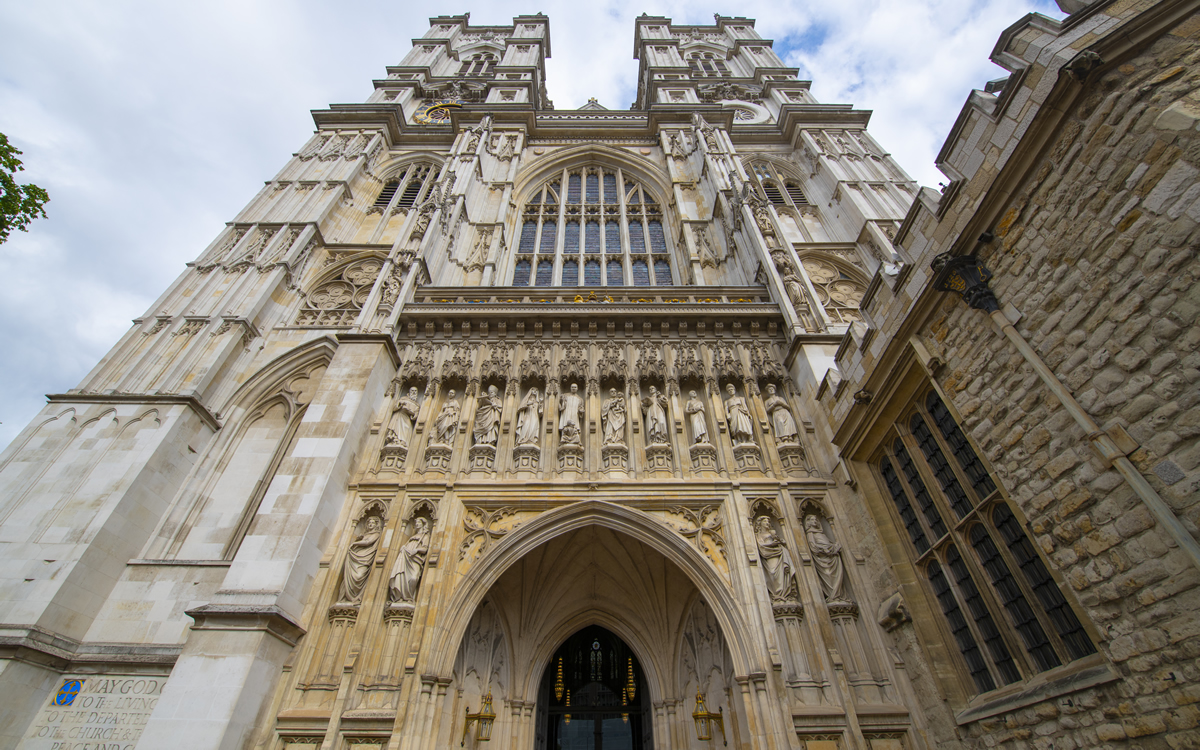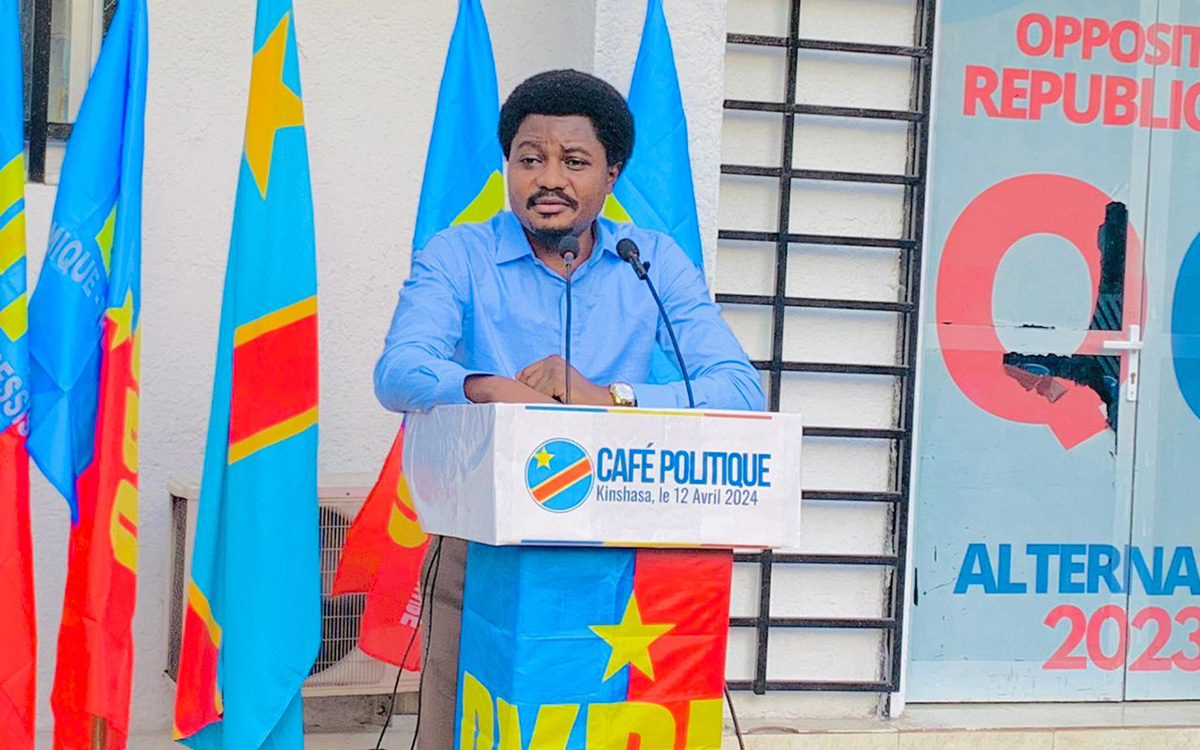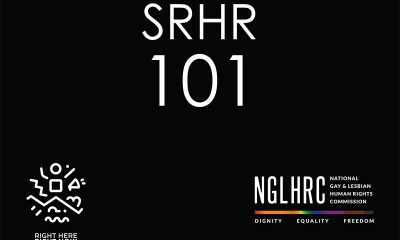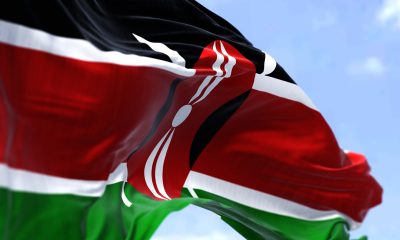Africa
Church of England’s blessings of same-sex couples sparks anger among Anglican churches in Uganda, Kenya
Denominations consider breaking with mother church

The Church of England’s decision to allow clergy to bless same-sex marriages has angered the Anglican churches of Uganda and Kenya to the point that they are considering a total disassociation with it.
The Kenya and Uganda churches are now looking upon a conservative Anglican breakaway group — the Global Anglican Future Conference (Gafcon) — to which they also belong to give them direction on their association with their mother Church of England in April. Anglican Church of Uganda Archbishop Stephen Kaziimba revealed this while condemning the General Synod of the Church of England, its top governing body, for, in his words, embracing sin by recognizing homosexuality against God’s word.
Gafcon’s 4th conference will begin in Kigali, Rwanda, on April 17. More than 1,000 people, who include “Bible-believing” archbishops, bishops and Anglicans from across the world are expected to attend.
The General Synod, which comprises hundreds of elected members who meet at least two times a year, on Feb. 9 supported the proposal for priests to bless gay couples. Two hundred and fifty bishops, clearly and lay people voted for it, while 181 opposed it and 10 abstained.
The meeting took place in London.
“The Church of Uganda has more than 200 members traveling to Kigali in April,” Kaziimba said. “We shall pray, sit together and discern the mind of Christ for the way forward. We need the wisdom of Solomon to know how to faithfully respond to the crisis at hand.”
Kaziimba through his press statement in response to the Church of England’s decision demands it to abandon the Anglican Communion and form a Canterbury Communion with other liberal Anglican churches that include the Episcopal Church in the U.S. and others in Brazil, Scotland and Canada.
All country Anglican churches have the freedom of conducting their affairs independently.
The Anglican Church of Uganda started to distance itself from the fellowship of the Church of England when the Episcopal Church in 2003 consecrated now retired New Hampshire Bishop V. Gene Robinson, who is openly gay. The Archbishop of Canterbury refused to take any disciplinary action against the Episcopal Church, which led to Gafcon’s emergence in 2008.
Kaziimba accuses the Church of England of departing from the Anglican faith and turning into “false teachers” by condoning same-sex marriages, while noting the Bible only recognizes marriage as between a man and a woman.
Archbishop Foley Beach, who chairs Gafcon, in a statement also criticized the Church of England and called for Archbishop of Canterbury Justin Welby’s resignation for breaking his vows to forbid “all erroneous and strange doctrine contrary to God’s word” in the church.
“This decision by the Church of England raises questions regarding the relationship of Anglican Provinces around the world with the Church of England and the continued role of the Archbishop of Canterbury,” Beach stated.
He noted that “we shall have more to say and do about these matters” in the Kigali conference.
The Anglican Church of Kenya Archbishop Jackson Ole Sapit also criticized the Church of England’s decision of blessing gay couples as “devious.”
He noted the liberal Anglican churches have lost all theological and doctrinal legitimacy and have resorted to using their political dominance to secularize the church by normalizing all manner of sin.
“It is ridiculous that the Church of England affirms to remain faithful to the traditional teachings of marriage yet it has sanctioned the so-called prayers of love to be used in its churches to bless unions between persons of the same sex,” Sapit said.
He warned what he described as political and secular correctness that exists in liberal Anglican churches only seeks to undermine the true Gospel, thereby rendering them irrelevant after losing their church identity.
Sapit maintained the Anglican Church of Kenya recognizes marriage as the union between a “man and a woman, monogamous and heterosexual.” He added that any deviation from this Godly union is sinful and unacceptable.
“If there are people who are not called to marriage and are faithful followers of Christ, let them embrace celibacy, and live a life obedient to the teachings of the bible as they so profess to believe in,” Sapit said.
Kenya and Uganda criminalize consensual same-sex sexual relations. The churches have been at the forefront of supporting these laws.
For instance, Kaziimba on Feb. 13 challenged Ugandan lawmakers not to relent in the fight against homosexuality in order to protect the country’s morality.
His comments come against the backdrop of plans to introduce a new bill in the Ugandan Parliament that seeks to further curtail homosexuality by criminalizing LGBTQ and intersex organizations and activities in the country. Uganda’s NGO Bureau, which monitors NGOs that operate in the country, last month recommended a new law that “prohibits the promotion of LGBTQ activities in the country.”
Africa
Ugandan activists appeal ruling that upheld Anti-Homosexuality Act
Country’s Constitutional Court refused to ‘nullify’ law

Twenty-two LGBTQ activists in Uganda have appealed this month’s ruling that upheld the country’s Anti-Homosexuality Act.
The Constitutional Court on April 3 refused to “nullify the Anti-Homosexuality Act in its totality.”
President Yoweri Museveni last May signed the law, which contains a death penalty provision for “aggravated homosexuality.”
The U.S. subsequently imposed visa restrictions on Ugandan officials and removed the country from a program that allows sub-Saharan African countries to trade duty-free with the U.S. The World Bank Group also announced the suspension of new loans to Uganda.
Media reports indicate Sexual Minorities Uganda Executive Director Frank Mugisha and Jacqueline Kasha Nabagesara are among the activists who filed the appeal.
Africa
Congolese lawmaker introduces anti-homosexuality bill
Constant Mutamba’s measure seen as distraction from country’s problems

A member of the Democratic Republic of Congo’s National Assembly who is a leader of the country’s opposition party has introduced a bill that would criminalize LGBTQ people.
Part of the bill that Constant Mutamba, leader of the Dynamic Progressive Revolutionary Opposition platform, has put forth states anyone who “commits a homosexual act (including acts and gestures) will be liable to a 5- or 10-year prison sentence.”
The country in recent years has seen government leaders and civic society target the community with anti-LGBTQ sentiments.
The Superior Council for Audiovisual and Communication, Media Regulatory Authority last June cautioned the media against showing LGBTQ-specific conversations. Several activists have criticized Mutamba’s bill, saying it seeks to move attention away from governance, service delivery and other pertinent issues in the country.
Sirius Tekasala, a human rights activist, said a person’s sexual orientation does not impact issues of governance.
“The proposed bill does not go in the direction of improving the socio-economic life of the Congolese people,” said Tekasala. “It’s not homosexuals who prevent you from doing your job well or from breathing. This is a violation of human rights.”
Mbuela Mbadu Dieudonné, a social analyst and trade unionist, said the bill is just a way of deviating people from the pertinent issues.
“He should suggest how to get the Congolese people out of this precariousness of life which is growing on a daily basis,” said Dieudonné. “When we don’t know the real problems of the Congolese people, he sets himself up as the great director of scenes to distract the Congolese people.”
Many Congolese, however, seem to support the bill and have applauded Mutamba for drafting it.
This is not the first time that such kind of a bill has been drafted.
An anti-homosexuality bill introduced in 2010 would have sentenced people who engage in consensual same-sex sexual relations to between three and five years in prison. The measure, however, did not become law.
Mutamba’s bill, however, may pass with Uganda’s Anti-Homosexuality Act in effect. The country’s Constitutional Court earlier this month upheld it. Burundi, Tanzania and other neighboring countries are also considering similar measures.
Many Congolese people view LGBTQ rights as a Western phenomenon that disregards their religious and cultural beliefs. LGBTQ Congolese are among those who have fled the country and sought refuge in the Kakuma refugee camp in Kenya and other places.
Consensual same-sex sexual relations are not criminalized in the Democratic Republic of Congo, but Congolese law does not recognize same-sex marriages.
Africa
Prominent transgender woman in Nigeria arrested, charged with defacing currency
Authorities say Idris Okuneye, known as Bobrisky, flaunted money

Nigeria’s Economic and Financial Crimes Commission’s decision to arrest a well-known transgender woman over the practice of flaunting money has sparked questions among several human rights activists.
Idris Okuneye, who is known as Bobrisky, was first arrested last Wednesday.
Justice Abimbola Awogboro of the Lagos Federal High Court on April 5 charged her with four counts of mutilating N490,000 (roughly $375.)
The EFCC alleges Bobrinsky between last July and August flaunted N50,000 (roughly $36) during a social event and N400,000 ($306) at another gathering last month. Bobrinsky has been charged with violating section 21(1) of the Central Bank Act of 2007.
“The Lagos Zonal EFCC, on Friday, April 5, 2024, secured the conviction of Idris Okuneye, (Bobrisky), before Justice Abimbola Awogboro sitting at the Federal High Court, Ikoyi, Lagos over mutilation of the Naira notes,” reads the EFCC complaint that misgenders Bobrisky. “He was arraigned on Friday on a four-count charge bordering on mutilation of the Naira notes to the tune of N490,000.”
“Justice Awogboro, thereafter, ruled, that upon the admission of guilt by the defendant, and following the evidence tendered, the defendant is declared guilty as charged,” adds the statement.
The EFCC said after listening to both parties, Awogboro delayed his ruling and also ordered that Bobrisky remain in EFCC custody. Activist Felix Abayomi said the EFCC was simply using Bobrisky as a scapegoat due to the fact that she is a vulnerable member of the society.
“Discrimination in the name of implementing a pick and choose law! Why go after someone that is a vulnerable member of our society? Someone that is clearly dealing and coping with stigmatization of her lifestyle choices which is innate. Using her as a scapegoat is uncalled for,” said Abayomi. “How does spraying the Naira that is cultural to us as a people ever even become a financial crime? People who commit economic and financial crimes against us as a people and against our nation state are sitting comfortably in the hollows of our legislative chambers and power.”
Chidi Odinkalu, the former chair of the National Human Rights Commission, said the arrest was not about the mutilation of the Naira notes, but about Bobrisky’s gender identity.
“The EFCC should be ashamed of themselves,” said Odinkalu. “The power of arrest and prosecution is a public trust that should not be weaponized for the persecution of those whom they don’t like. It is either the EFCC is evidently idle or this is a clear abuse of power.”
EFCC spokesperson Dele Oyewale said Odinkalu’s statements were reckless.
“The commission views such commentaries from Odinkalu as unbecoming of a former head of a major government agency,” said Oyewale. “Okuneye was arrested and arraigned by the commission on the basis of clear cases of abuse of the Naira to which he has pleaded guilty.”
“Odinkalu has a right to free speech as a Nigerian, but such a right should be exercised with decorum and responsibility,” added Oyewale. “The commission would not hesitate to take appropriate legal actions against such uncouth commentaries against its lawful mandate by anyone. Odinkalu is warned and advised to ventilate his rascally opinions more responsibly in future situations.”
Bobrisky is one of the few individuals on the African continent who has publicly discussed their gender transition.
Ever since she started to publicly show her transition, several Nigerian political pundits have been calling for her arrest. There are no laws that specifically target trans Nigerians, but the Same-Sex Marriage Act criminalizes same-sex marriages and prohibits the public display of same-sex relationships with up to 14 years in prison.
In states where Sharia law is practiced, those found engaging in same-sex sexual activities can be sentenced to death by stoning. Even those who identify as trans can receive 50 lashes or more.
Update: Awogboro on Friday sentenced Bobrisky to six months in prison without the option of paying a fine. Reports indicate authorities will send her to a men’s prison.
-

 District of Columbia2 days ago
District of Columbia2 days agoReenactment of first gay rights picket at White House draws interest of tourists
-

 District of Columbia2 days ago
District of Columbia2 days agoNew D.C. LGBTQ+ bar Crush set to open April 19
-

 Arizona2 days ago
Arizona2 days agoAriz. governor vetoes anti-transgender, Ten Commandments bill
-

 Africa4 days ago
Africa4 days agoUgandan activists appeal ruling that upheld Anti-Homosexuality Act










